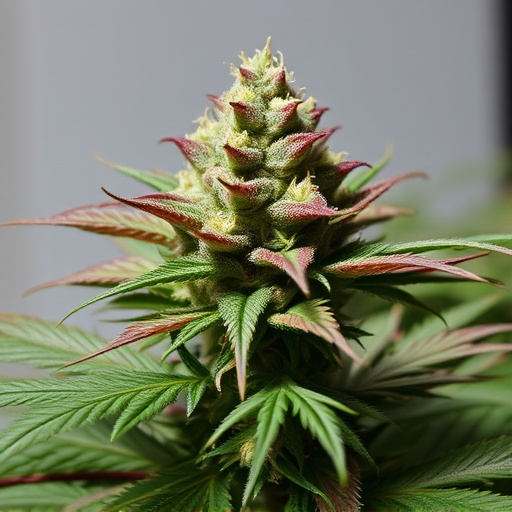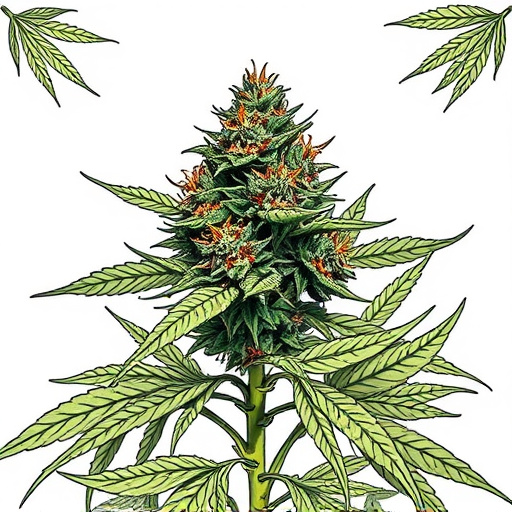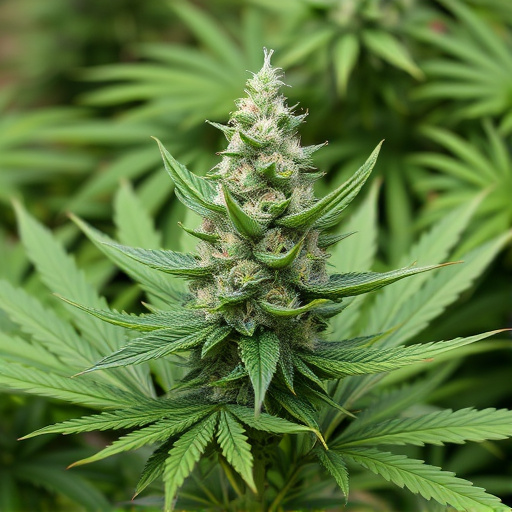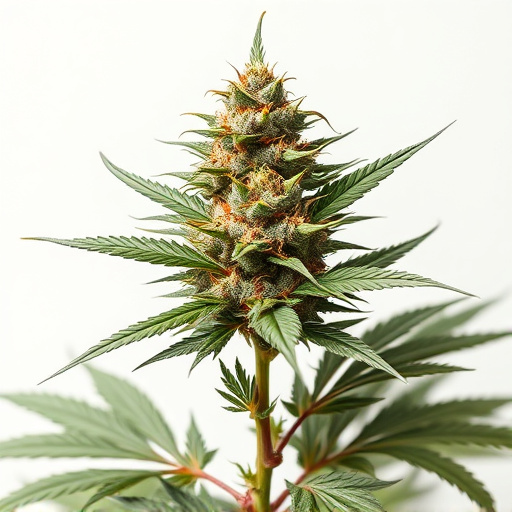The growing popularity of original strains of cannabis underscores the need to understand their potential health risks, especially with frequent and heavy use leading to mental health issues like increased psychosis risk, cognitive function impairments, and respiratory problems. High THC content can cause short-term effects like breathing difficulties and concentration issues, potentially resulting in long-term cognitive impairments and mental health concerns such as anxiety and depression. Understanding the wide range of effects from energizing to calming, dependent on sativa or indica strains, is crucial for consumers to make informed decisions about original cannabis strains' use and associated risks.
“Unveiling the Risks of Cannabis Flower: Navigating Potential Dangers and Responsible Use. While cannabis has gained popularity for its therapeutic potential, it’s crucial to understand the associated health risks. This article delves into the short-term and long-term effects, highlighting respiratory issues, cognitive impairment, and mental health concerns. Furthermore, it explores how different original strains of cannabis can vary significantly in THC content and chemical profiles, impacting user experiences and risks. We also provide practical strategies for safe consumption, emphasizing dosage control, consumption methods, and personal tolerance levels to foster responsible cannabis use.”
- Potential Health Risks of Cannabis Flower
- – Discussing the short-term and long-term health effects, including respiratory issues, cognitive impairment, and mental health concerns.
- The Impact of Different Original Strains
Potential Health Risks of Cannabis Flower
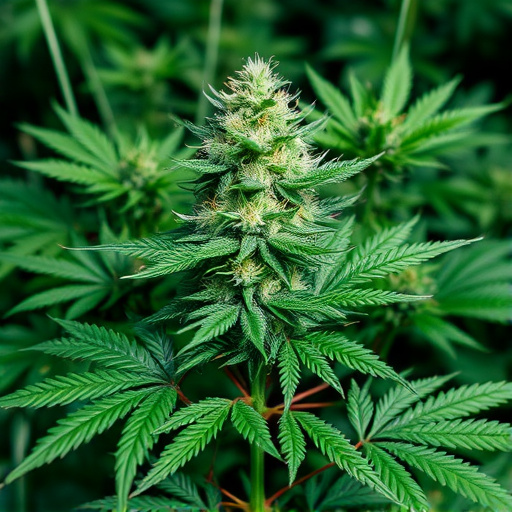
The potential health risks associated with consuming original strains of cannabis are a topic that demands attention, especially as its popularity grows. While many advocate for its medicinal properties, it’s crucial to understand the possible side effects, which can vary depending on individual factors and consumption methods. One significant concern is the impact on mental health; frequent and heavy use has been linked to an increased risk of psychosis, particularly in individuals with a predisposition to mental health disorders.
Additionally, cannabis flower can affect cognitive function, especially in adolescents whose brains are still developing. Short-term effects include impaired memory, concentration, and coordination. Long-term use may contribute to persistent cognitive impairments and could potentially impact overall brain health. Furthermore, the respiratory system might be at risk due to the inhalation of smoke or vapor, leading to issues such as chronic bronchitis and increased susceptibility to respiratory infections.
– Discussing the short-term and long-term health effects, including respiratory issues, cognitive impairment, and mental health concerns.
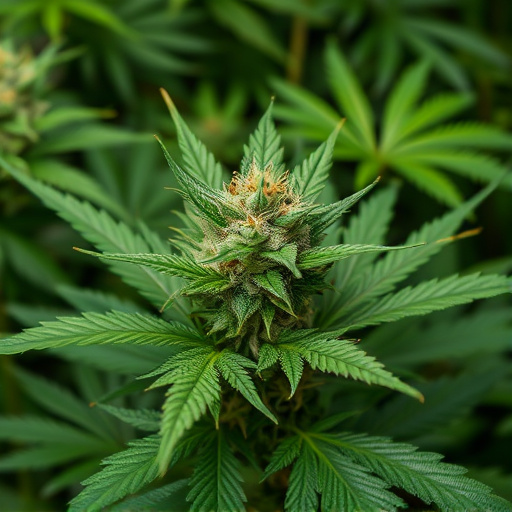
Cannabis flower, especially in its various modern strains, offers therapeutic benefits for many users. However, it’s crucial to be aware that regular consumption can lead to both short-term and long-term health risks, particularly when considering original strains of cannabis with high THC (tetrahydrocannabinol) content. Short-term effects may include respiratory issues due to the inhalation of smoke or vapor, which can irritate the lungs and exacerbate existing conditions like asthma or chronic obstructive pulmonary disease (COPD). Cognitive impairment is another immediate concern, often characterized by impaired memory, concentration, and decision-making abilities that can impact daily functioning and safety.
Over a prolonged period, regular cannabis use has been linked to potential mental health concerns. Studies suggest an increased risk of psychotic disorders, anxiety, and depression among frequent users, especially those who started using at a young age. Long-term exposure to high THC strains may also contribute to cognitive deficits, as research indicates that the endocannabinoid system plays a role in learning, memory, and mood regulation. As such, it’s essential for consumers to understand the potential risks associated with original cannabis strains, especially those with elevated THC levels, to make informed decisions about their use.
The Impact of Different Original Strains
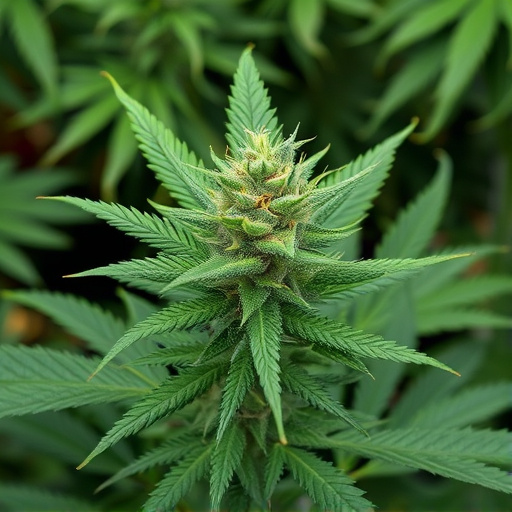
The effects of cannabis can vary greatly depending on the plant’s original strain, which plays a crucial role in determining its unique chemical composition. Different strains offer distinct experiences, ranging from uplifting and energetic to calming and relaxing. For example, Sativa strains are known for their ability to enhance mental clarity and boost creativity, making them popular choices for daytime use or activities requiring focus. In contrast, Indica strains tend to have a more sedative effect, often promoting relaxation and reducing stress, which makes them more suitable for evening or nighttime consumption.
The original strain also influences the potential risks associated with cannabis use. Certain strains may contain higher levels of THC (tetrahydrocannabinol), the primary psychoactive compound responsible for most of cannabis’ effects. Higher THC concentrations can lead to increased anxiety, paranoia, and disorientation in some individuals. Additionally, specific genetic traits within a strain might make certain people more susceptible to adverse reactions, such as short-term memory issues or respiratory problems. Thus, understanding the original strains available is essential for consumers to make informed decisions and manage potential risks effectively.
While the potential therapeutic benefits of cannabis flower are notable, it’s crucial to weigh these against its risks. The impact of different original strains varies, with some potentially exacerbating existing health conditions, particularly when misused or consumed irresponsibly. Short-term effects like respiratory irritation and cognitive impairment, as well as long-term mental health concerns, underscore the importance of informed use. Understanding the specific traits and effects of various original strains is essential for navigating this complex landscape safely. Always consult with healthcare professionals before incorporating cannabis into your routine.
